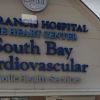What You Should Know About Heart Disease and Hypertension
Heart disease and hypertension (high blood pressure) are two of the most prevalent health issues that affect millions of people worldwide. Understanding these conditions and how they are connected is essential for maintaining a healthy heart. In this article, we will explore what you should know about heart disease and hypertension, offering insights into prevention, symptoms, and treatment options that can help you manage these risks effectively.
- 1. Understanding Heart Disease: What It Is and How It Affects Your Body
- 2. Hypertension: The Silent Killer
- 3. The Risk Factors of Heart Disease and Hypertension
- 4. Preventing Heart Disease and Managing Hypertension
- 5. Treatment Options for Heart Disease and Hypertension
1. Understanding Heart Disease: What It Is and How It Affects Your Body
Heart disease encompasses a range of conditions that affect the heart's structure and function. These conditions can include coronary artery disease, heart attacks, heart failure, and arrhythmias. The impact of heart disease can vary, but it often leads to impaired circulation, increased strain on the heart, and, in severe cases, heart failure.

The Role of Hypertension in Heart Disease
Hypertension is one of the primary causes of heart disease. Over time, high blood pressure can damage the arteries, making them less flexible and narrowing the passageways for blood to flow. This increases the risk of heart attacks, strokes, and kidney failure. Managing hypertension effectively is crucial in preventing the development or worsening of heart disease.
Atlanta Heart Specialists
atlanta heart specialists
4375 Johns Creek Pkwy #350, Suwanee, GA 30024, USA

2. Hypertension: The Silent Killer
Hypertension is often referred to as a "silent killer" because it typically has no symptoms until serious damage has been done. High blood pressure occurs when the force of blood against the walls of the arteries is consistently too high, which can lead to a variety of complications if left untreated.
How Hypertension Affects Your Body
If left unchecked, hypertension can cause severe damage to your heart, kidneys, and brain. The high pressure puts extra stress on your cardiovascular system, which may eventually lead to heart disease, stroke, or kidney failure. Recognizing the importance of regular blood pressure monitoring is vital for early detection and management.
3. The Risk Factors of Heart Disease and Hypertension
Several factors can contribute to both heart disease and hypertension. Some are uncontrollable, while others can be managed through lifestyle choices.
Uncontrollable Risk Factors
Age, genetics, and family history play a significant role in increasing the risk of heart disease and hypertension. As we age, the risk for both conditions naturally increases, especially if there's a family history of cardiovascular problems.
Controllable Risk Factors
Controllable factors such as diet, physical activity, and smoking habits significantly influence your heart health. A sedentary lifestyle, poor diet, and excessive alcohol consumption can raise your blood pressure and increase your risk of heart disease. Conversely, a healthy lifestyle, including a balanced diet and regular exercise, can significantly lower your risk.
4. Preventing Heart Disease and Managing Hypertension
Preventing heart disease and managing hypertension are closely related. The best way to manage these conditions is through prevention. Maintaining a healthy weight, exercising regularly, eating a heart-healthy diet, and avoiding smoking are all essential steps in reducing your risk.
Healthy Habits to Incorporate
Incorporating a healthy lifestyle into your daily routine can go a long way in preventing heart disease and hypertension. Focus on eating a diet rich in fruits, vegetables, whole grains, and lean proteins. Reducing sodium intake and avoiding foods high in saturated fats can help manage blood pressure levels. Regular physical activity—such as walking, swimming, or cycling—can also help strengthen the heart and lower blood pressure.
Stress Management and Sleep
Chronic stress and poor sleep can also contribute to high blood pressure. Practicing stress-relieving activities such as yoga, meditation, or deep breathing exercises can help keep your blood pressure in check. Ensuring you get enough quality sleep each night is another vital step in maintaining healthy blood pressure levels.
5. Treatment Options for Heart Disease and Hypertension
If you are diagnosed with heart disease or hypertension, several treatment options can help manage these conditions and improve your quality of life. Your doctor may recommend lifestyle changes, medications, or both to control blood pressure and prevent further damage to your heart.
Medications for Hypertension
There are various medications available to help manage hypertension. Diuretics, ACE inhibitors, beta-blockers, and calcium channel blockers are commonly prescribed to lower blood pressure. It's important to follow your doctor's instructions and monitor your blood pressure regularly to ensure your treatment plan is effective.
Surgical Interventions for Heart Disease
In more severe cases of heart disease, surgical interventions may be necessary. Procedures such as coronary artery bypass grafting (CABG), angioplasty, or the insertion of a stent can help improve blood flow to the heart and reduce the risk of heart attacks.
Heart disease and hypertension are serious health conditions, but with the right knowledge, lifestyle changes, and treatment, they are manageable. By understanding the causes, symptoms, and available treatments, you can take control of your heart health and live a long, fulfilling life. For more information on heart disease and hypertension management, consider consulting with a healthcare professional to develop a plan tailored to your needs.
Looking for heart-healthy products and solutions? Explore our selection of heart disease management resources and hypertension treatments at [Your Company Name], and take the next step toward a healthier heart today.





















Deborah Heart and Lung Center
deborah heart and lung center
200 Trenton Rd, Browns Mills, NJ 08015, USA